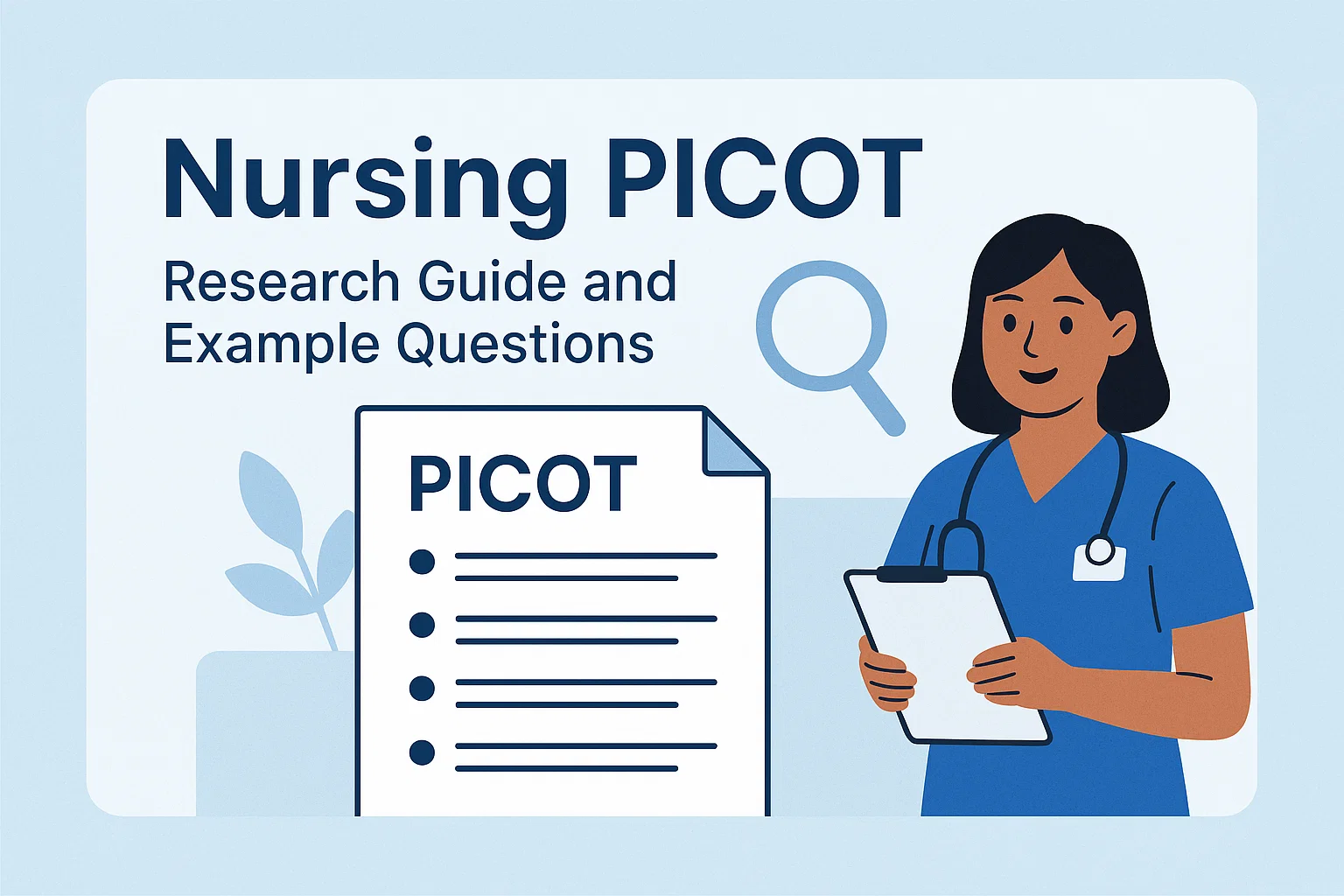Introduction
Nursing presents multiple advanced nursing career pathways, offering numerous fields that align with personal abilities and professional aspirations. Why is nursing a good career? It provides diverse opportunities for individuals who prefer hands-on medical work, teaching roles, or leadership responsibilities. Nursing career options cater to a wide range of interests, from direct patient care to research, education, and healthcare administration. This informational guide explores career nursing opportunities through various employment categories, educational requirements, salary expectations, and growth trajectories.
What Are the Different Nursing Career Pathways?
The nursing profession has two main categories of career opportunities: clinical work and non-clinical work. Patients receive hands-on care from nurses in clinical positions and nurses in non-clinical fields specializing in education, research, administration, or policy development. The following sections present details about common nursing pathways, supported by latest nursing news and professional insights.
1. Registered Nurse (RN)
- Role: RN professionals perform three main tasks: health evaluation of patients, medicine delivery, care coordination, and patient and family education.
- Qualifications: To become a registered nurse, one must complete an associate degree in nursing or a bachelor of science in nursing and then pass the NCLEX-RN examination.
- Salary: The annual median salary for registered nurses reached $77,600 during 2021, yet nurses can boost their earnings through time in practice and geographic location choices.
- Career growth: Registered Nurses can pursue career advancement by specializing in pediatric care, oncology practice, or geriatrics, or advancing to more complex practice roles.
2. Nurse Practitioner (NP)
- Role: NPs offer primary healthcare services and specialized medical care through diagnosis and prescription of medications and treatment plan oversight.
- Qualifications: Master of Science in Nursing (MSN) or Doctor of Nursing Practice (DNP), where evidence-based practice plays a crucial role in board certification and clinical decision-making.
- Salary: NPs typically receive an average annual salary of $120,680, although this amount varies depending on their chosen specialty and where they practice.
- Career Growth: High demand across various specialties, with opportunities for leadership roles and independent practice in certain states.
3. Clinical Nurse Specialist (CNS)
- Role: CNSs specialize in one clinical practice area through which they deliver hands-on patient care while providing consulting services and educational support to nursing personnel.
- Qualifications: MSN or DNP with a focus on a clinical specialty.
- Salary: The annual earnings for this role range from $90,000 to $110,000, with a median value of $110,000.
- Career Growth: The role allows nurses to advance their careers by impacting nursing practice guidelines and creating healthcare policies.
4. Nurse Educator
- Role: Nurse educators educate and mentor nursing students through educational settings and clinical training environments.
- Qualifications: MSN or DNP, often with a focus on education.
- Salary: The median yearly salary is $84,907, and academic institutions and geographic locations affect salary amounts.
- Career Growth: Educational institutions provide administrative and leadership positions that nurses can progress toward through career development.
5. Nurse Administrator
- Role: Nurse administrators direct nursing departments and healthcare facilities through their work on management tasks, policy implementation, and quality improvement initiatives.
- Qualifications: MSN or DNP with a focus on administration or leadership.
- Salary: Nurse administrators earn between $90,000 and $120,000 yearly in their median salaries.
- Career Growth: Chief Nursing Officer (CNO) executive positions become available as a career growth opportunity.
What Are the Top Nursing Specializations?
Medical professionals in nursing career dedicate their practice to distinct patient groups or healthcare delivery environments. Various nursing specialties lead the field as follows:
1. Pediatric Nursing
- Role: Pediatric nurses dedicate their practice to serving infants, children, and adolescents while handling their age-specific healthcare requirements.
- Qualifications: An RN with pediatric certification is required for this role, but MSN or DNP qualifications may be needed for advanced positions.
- Salary: Pediatric nurses typically receive an annual median wage of $75,000, and their compensation can rise as they advance in their practice.
- Career Growth: The profession allows nurses to progress into pediatric nurse practitioner roles or assume leadership positions within pediatric care facilities.
2. Oncology Nursing
- Role: Oncology nurses deliver cancer treatment to patients by providing chemotherapy services and support during their entire treatment process.
- Qualifications: The position demands an RN with oncology certification, while advanced roles need either an MSN or a DNP.
- Salary: Oncology nurses receive an annual median salary of $85,826, which can increase for nurses who hold advanced practice roles.
- Career Growth: Oncology nurse practitioner roles and leadership positions in cancer care centers represent potential career growth opportunities for nurses, supported by organizations like the Oncology Nursing Society.
3. Geriatric Nursing
- Role: Geriatric nurses care for senior citizens by handling age-specific medical problems and improving their quality of life.
- Qualifications: The job requires an RN with geriatric certification, and advanced roles require either an MSN or DNP degree.
- Salary: According to the industry statistics, geriatric nurses receive a median annual pay of $78,400.
- Career Growth: Elder care facilities and special geriatric nursing positions offer career advancement opportunities to geriatric nurse practitioners.
4. Emergency Nursing
- Role: In Nursing career emergency departments give urgent medical care to patients with various acute medical conditions at emergency sites.
- Qualifications: The position requires a Registered Nurse with emergency nursing certification, and advanced roles need either an MSN or a DNP.
- Salary: According to salary reports, emergency nurses receive an average yearly income of $78,732.
- Career Growth: The profession offers emergency nurse practitioner specialization and management positions leading to leadership roles within emergency care facilities, supported by resources from the American Association of Nurse Practitioners (AANP).
5. Nurse Midwifery
- Role: In Nursing Career Nurse midwives support women throughout pregnancy and childbirth by offering natural childbirth services and family-centered care.
- Qualifications: MSN or DNP with a focus on midwifery.
- Salary: In Nursing Career Nurse midwives receive an average annual paycheck of $129,650.
- Career Growth: Maternal health leadership positions and teaching future nurse midwives represent two possible career advancement paths for nurse midwives.
How Can Nurses Advance Their Careers?
A nursing professional must pursue additional education while obtaining certifications and gaining specific expertise to advance their career. The following steps represent strategies that help nurses achieve career growth:
- Pursue Advanced Degrees: Advanced degrees such as MSN or DNP enable nurses to qualify for advanced practice positions and leadership roles and bring higher earning potential.
- Obtain Certifications: Obtaining specialized certifications helps nurses develop their expertise, which typically creates career advancement possibilities.
- Seek Mentorship: Nurses who seek mentorship benefit from the wisdom and assistance of experienced nursing professionals who share guidance about career advancement.
- Engage in Continuing Education: Participating in educational activities through workshops and conferences and accessing online courses enables nursing practitioners to stay informed about current healthcare developments and preferred methods.
What Is the Job Outlook for Nurses?
The healthcare industry expects an amplified need for nursing professionals in the future. According to data from the U.S. Bureau of Labor Statistics, the nursing career paths available today will experience significant expansion to meet growing demand.
Is nursing a good career? The numbers say yes. Registered Nurses\’ employment is projected to grow by 9% between 2020 and 2030, outpacing the average growth rate of other occupations. This strong job outlook confirms that pursuing a career in nursing offers stability and opportunity.
Nurse Practitioners, in particular, face a projected workforce expansion of 52% from 2020 to 2030—far exceeding the typical employment growth rate across all sectors. Nurse Educators also benefit from rising demand, with projected employment growth of 20% during the same period as the need for qualified nursing faculty increases.
This surge is driven by an aging population, a shift toward prevention-focused healthcare, and a growing emphasis on service-oriented medical care. For those exploring nursing career paths, the future promises a rewarding profession with opportunities for advancement, specialization, and meaningful impact on patient care.
Conclusion
Nursing has multiple educational and occupational routes that accommodate different areas of interest and talent capability. Every nursing career path matches a specific passion and goal among registered nurses who seek direct patient care roles, education, or leadership positions. The vast diversity within nursing allows practitioners to become nurse practitioners while choosing pediatric, oncology, or geriatric care specialties.
The healthcare industry shows strong signs of future growth because nursing professionals can access high-demand advanced practice roles and specialized positions. Through additional training and certifications, your career advancement and your ability to provide successful patient healthcare alongside improved compensation will expand.
Every nursing career pathway allows you to discover job fulfillment while helping patients directly and creates a bright employment outlook for career development. Your selection of a nursing specialty and skills demands will become clearer when you research different specializations and their training requirements.
New nursing professionals and career advancement seekers will find stability in nursing because it offers multiple specializations that allow it to meet healthcare needs through personalized approaches to human improvement. Explore the American Nurses Association (ANA) resources for nursing careers and specializations to learn more.
Read also: A Guide to Understanding Medical Terminology for Nursing Students




